
Johan August Strindberg was a Swedish playwright, novelist, poet, essayist, and painter. A prolific writer who often drew directly on his personal experience, Strindberg wrote more than 60 plays and more than 30 works of fiction, autobiography, history, cultural analysis, and politics during his career, which spanned four decades. A bold experimenter and iconoclast throughout his life, he explored a wide range of dramatic methods and purposes, from naturalistic tragedy, monodrama, and historical plays to his anticipations of expressionist and surrealist dramatic techniques. From his earliest work, Strindberg developed innovative forms of dramatic action, language, and visual composition. He is considered the "father" of modern Swedish literature and his The Red Room (1879) has frequently been described as the first modern Swedish novel. In Sweden, Strindberg is known as an essayist, painter, poet, and especially novelist and playwright, but in other countries he is known mostly as a playwright.

Jules-Jean-Paul Fort was a French poet associated with the Symbolist movement. At the age of 18, reacting against the Naturalistic theatre, Fort founded the Théâtre d'Art (1890–93). He also founded and edited the literary reviews Livre d'Art with Alfred Jarry and Vers et Prose (1905–14) with poet Guillaume Apollinaire, which published the work of Paul Valéry and other important Symbolist writers. Fort is notable for his enormous volume of poetry, having published more than thirty volumes of ballads and, according to Amy Lowell, for creating the polyphonic prose form in his 'Ballades francaises'.
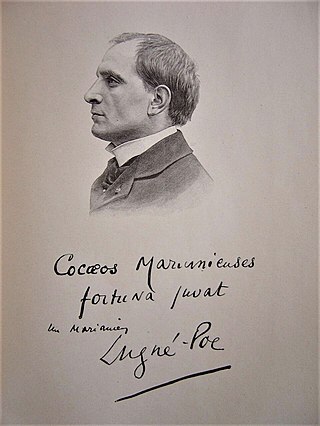
Aurélien-Marie Lugné, known by his stage and pen name Lugné-Poe, was a French actor, theatre director, and scenic designer. He founded the landmark Paris theatre company, the Théâtre de l'Œuvre, which produced experimental work by French Symbolist writers and painters at the end of the nineteenth century. Like his contemporary, theatre pioneer André Antoine, he gave the French premieres of works by the leading Scandinavian playwrights Henrik Ibsen, August Strindberg, and Bjørnstjerne Bjørnson.

Miss Julie is a naturalistic play written in 1888 by August Strindberg. It is set on Midsummer's Eve and the following morning, which is Midsummer and the Feast Day of St. John the Baptist. The setting is an estate of a count in Sweden. Miss Julie is drawn to a senior servant, a valet named Jean, who is well-traveled and well-read. The action takes place in the kitchen of Miss Julie's father's manor, where Jean's fiancée, a servant named Christine, cooks and sometimes sleeps while Jean and Miss Julie talk.

Ferhad Shakely is a prominent Kurdish writer, poet and researcher. He is one of the founders of modern Kurdish poetry in the post-Goran period. He was born in 1951 in the province of Kirkuk in Iraq. He began publishing poetry in 1968. In the early 1970s he studied in the Kurdish department of the Baghdad University. He joined the Kurdish national movement under the leadership of Mustafa Barzany in 1974 and went to Syria in 1975. He lived in Germany from Autumn 1977 to Summer 1978. Finally he settled in Sweden in the same year. In 1981, after studying for one year at the University of Stockholm, he went to Uppsala University where he studied Iranian languages. He is now teaching in the same university. He published a Swedish-Kurdish Journal between 1985 and 1989 called Svensk-Kurdisk Journal. Moreover, he published a literary Kurdish magazine, Mamosta-y Kurd between 1985 and 1996. In 1992, he published Kurdish nationalism in Mam and Zin of Ahmad Khani, a literary history that was translated into Swedish, Turkish and Arabic. Many of his poems have been translated into Persian, Arabic, Norwegian, Swedish, English, French, Italian, Icelandic and Danish.
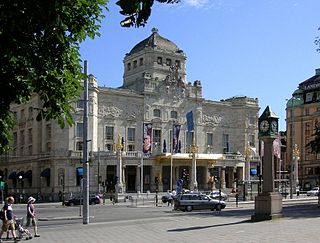
The Royal Dramatic Theatre is Sweden's national stage for "spoken drama", founded in 1788. Around one thousand shows are put on annually on the theatre's five running stages.
The Ghost Sonata is a play in three acts by the Swedish playwright August Strindberg. Written in 1907, it was first produced at Strindberg's Intimate Theatre in Stockholm on 21 January 1908. Since then, it has been staged by such notable directors as Max Reinhardt, Olof Molander, Roger Blin, and Ingmar Bergman. Bergman directed it four times: in 1941, 1954, 1973, and 2000. Strindberg took the title from Beethoven's Piano Sonata No. 17 in D minor, which he called 'The Gespenster Sonata', and also Piano Trio No. 5 in D major, known as the 'Ghost Trio'.

Sigrid "Siri" Sofia Matilda Elisabet von Essen was a Swedish-speaking Finnish noblewoman and actress. Her acting career spanned about 15 years, during which time she appeared in a number of plays that the Swedish dramatist and writer August Strindberg wrote specifically for her.
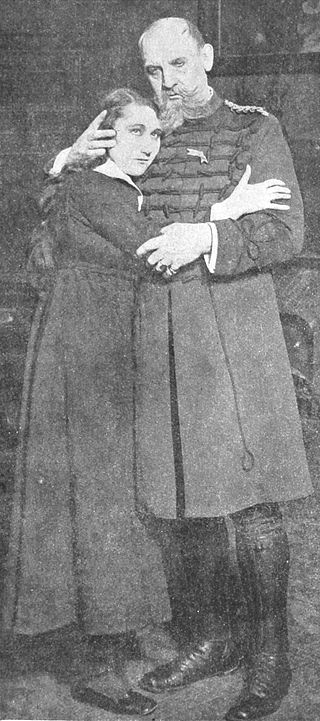
The Father is a naturalistic tragedy by Swedish playwright August Strindberg, written in 1887. It is about the struggle between parents over the future of their child; resulting in the mother, using her cunning manipulative skills, subduing and finally destroying the father.
Per Egil Törnqvist was Professor Emeritus of Scandinavian Studies at the University of Amsterdam and an academic literary critic.

Naturalism is a movement in European drama and theatre that developed in the late 19th and early 20th centuries. It refers to theatre that attempts to create an illusion of reality through a range of dramatic and theatrical strategies. Interest in naturalism especially flourished with the French playwrights of the time, but the most successful example is Strindberg's play Miss Julie, which was written with the intention to abide by both his own particular version of naturalism, and also the version described by the French novelist and literary theoretician, Emile Zola.
Michael Leverson Meyer was an English translator, biographer, journalist and dramatist who specialised in Scandinavian literature.
This is a list of August Strindberg's written works.
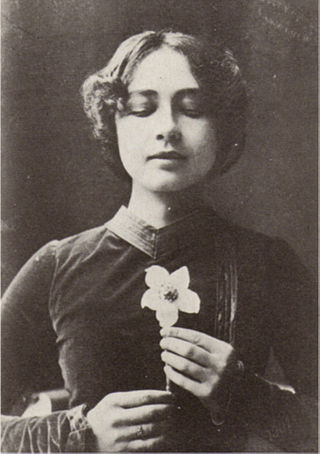
To Damascus, also known as The Road to Damascus, is a trilogy of plays by the Swedish playwright August Strindberg. The first two parts were published in 1898, with the third following in 1904. It has been described as "Strindberg's most complex play" and as "his greatest play," due to its "synthesis of a wide variety of myths, symbols and ideas with a profound spiritual analysis in a new dramatic form."

Creditors is a naturalistic tragicomedy by the Swedish playwright August Strindberg. It was written in Swedish during August and September 1888 in Denmark. It was first published in Danish in February 1889 and appeared in Swedish in 1890. It premiered at the Dagmar Theatre in Copenhagen in March 1889. It is seen as one of Strindberg's most powerful plays. Strindberg himself, writing in 1892, described it as his "most mature work."
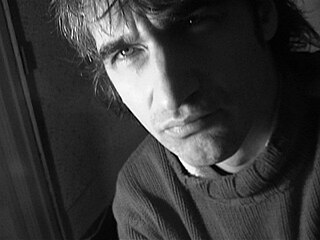
Gregory Motton is a British playwright and author. Motton is best known for the originality of his formally demanding, largely a-political theatre plays at the Royal Court in the 1980s and 1990s, state of the nation satires in the 1990s, and later for his polemics about working class politics, A Working Class Alternative To Labour and Helping Themselves – The Left Wing Middle Classes In Theatre And The Arts.

The Théâtre de Paris is a theatre located at 15, rue Blanche in the 9th arrondissement of Paris. It includes a second smaller venue, the Petit Théâtre de Paris.

The Théâtre de l'Œuvre is a Paris theatre on the Right Bank, located at 3, Cité Monthiers, entrance 55, rue de Clichy, in the 9° arrondissement. It is commonly conflated and confused with the late-nineteenth-century theater company named Théâtre de l'Œuvre, founded by actor-director-producer Aurélien Lugné-Poe, who would not take control of this performance space until 1919. His company is best known for its earlier phase of existence, before it acquired this theatre venue. From 1893 to 1899, in various Parisian theatres, Lugné-Poe premiered modernist plays by foreign dramatists, as well as new work by French Symbolists, most notoriously Alfred Jarry’s nihilistic farce Ubu Roi, which opened in 1896 at Nouveau-Théâtre.
The Outlaw is an 1871 one-act play by Swedish playwright August Strindberg written when he was a 22-year-old struggling University student who had yet to become a successful author. The story is based on old Viking sagas for which to prepare Strindberg taught himself Icelandic to read the old sagas. Soon after the premier at the Royal Theater, the King of Sweden, Charles XV, summoned Strindberg to his palace to tell him how much he enjoyed it and to offer help with the young writer's tuition. It was a seminal moment in Strindberg's career, allowing him to continue his studies and gaining him confidence and reputation as a writer.
The August Strindberg Repertory Theatre is the resident company at the Gene Frankel Theatre.












